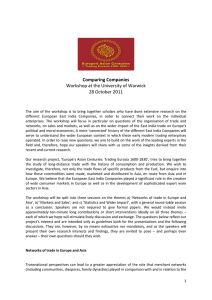Centennial Honors College Western Illinois University Undergraduate Research Day 2012
advertisement
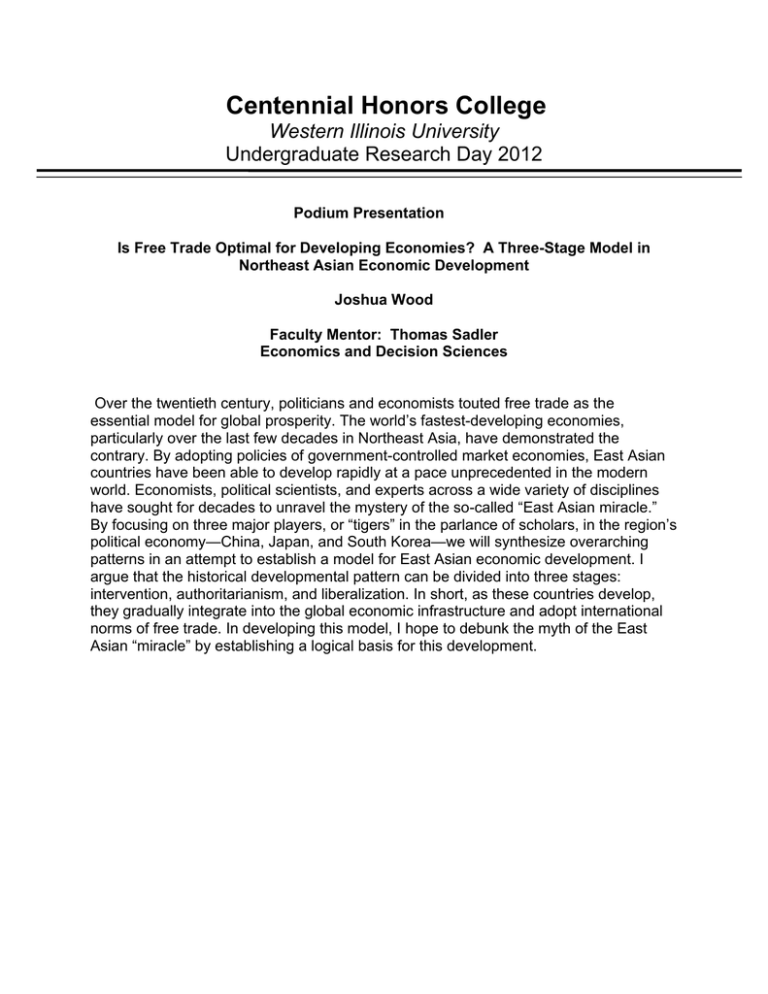
Centennial Honors College Western Illinois University Undergraduate Research Day 2012 Podium Presentation Is Free Trade Optimal for Developing Economies? A Three-Stage Model in Northeast Asian Economic Development Joshua Wood Faculty Mentor: Thomas Sadler Economics and Decision Sciences Over the twentieth century, politicians and economists touted free trade as the essential model for global prosperity. The world’s fastest-developing economies, particularly over the last few decades in Northeast Asia, have demonstrated the contrary. By adopting policies of government-controlled market economies, East Asian countries have been able to develop rapidly at a pace unprecedented in the modern world. Economists, political scientists, and experts across a wide variety of disciplines have sought for decades to unravel the mystery of the so-called “East Asian miracle.” By focusing on three major players, or “tigers” in the parlance of scholars, in the region’s political economy—China, Japan, and South Korea—we will synthesize overarching patterns in an attempt to establish a model for East Asian economic development. I argue that the historical developmental pattern can be divided into three stages: intervention, authoritarianism, and liberalization. In short, as these countries develop, they gradually integrate into the global economic infrastructure and adopt international norms of free trade. In developing this model, I hope to debunk the myth of the East Asian “miracle” by establishing a logical basis for this development.
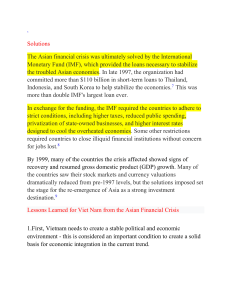

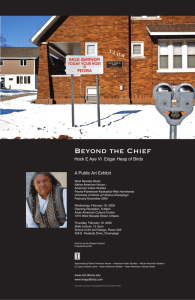
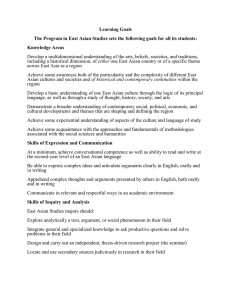
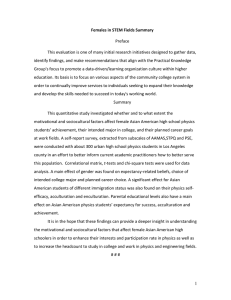
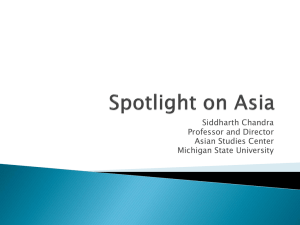

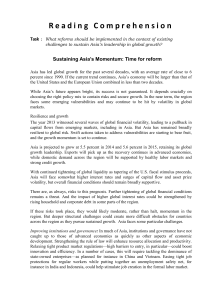
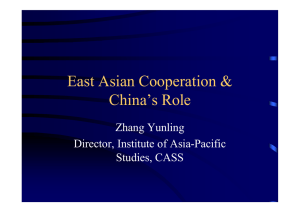
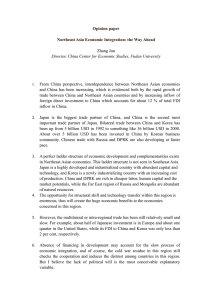
![Development and Geopolitics in East Asia [PPTX 57.62KB]](http://s2.studylib.net/store/data/014997851_1-245076771d703435c558c59da6b2b490-300x300.png)
